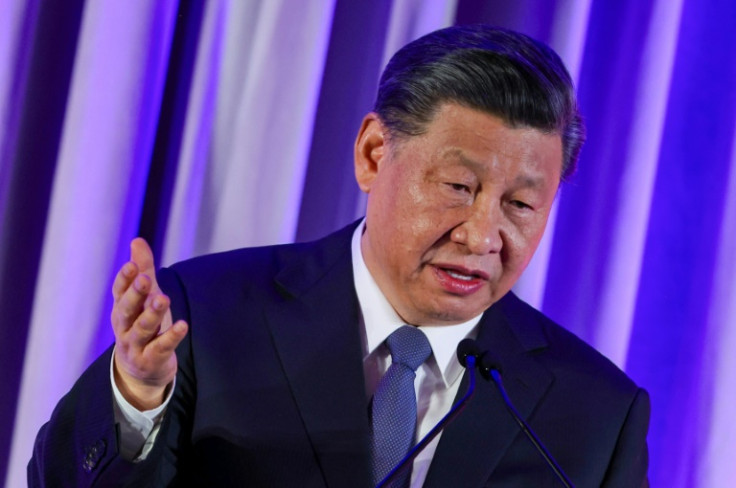
Chinese President Xi Jinping is optimistic about the country's economy for the new year, seeing "resilience" and promising a "better life for the people."
"The Chinese economy has sustained the momentum of recovery," he said in a message to the nation early this week. "Steady progress has been made in pursuing high-quality development. Our modernized industrial system has been further upgraded... Our goal is both inspiring and simple. Ultimately, it is about delivering a better life for the people."
However, economic numbers do not support this optimism. GDP growth has remained subdued in the 4-5% range, barely making the official numbers. Home prices have fallen for over a year, while manufacturing recovery has remained lackluster.
Meanwhile, soaring youth unemployment means that younger citizens must wait long to taste a better life. The situation is so bad that Beijing stopped reporting youth unemployment statistics.
Then there's the problem of underemployment, with scores of young people with master's degrees working in the food delivery industry rather than in the areas of their expertise.
"China's economic outlook for 2024 raises more red flags than reassurances," Emil Åkesson, founding partner and chairman at CLC & Partners, told International Business Times. "The anticipated GDP growth of around 5% suggests a notable slowdown, sharply contrasting with the government's optimistic claims. This contrast signals a larger narrative of economic uncertainty, not robustness."
Dan Pickard, Buchanan Ingersoll & Rooney shareholder and international trade & national security practice group leader, agrees.
"The Chinese economy is struggling, and it doesn't appear that things are going to get better anytime soon," he told IBT. "Unemployment remains high, and recent indicators confirm that Chinese manufacturing is contracting."
Pickard attributes the sluggishness of the Chinese economy to the lack of a full recovery from the extreme pandemic lockdowns, the real estate bubble and the demographic legacy problems of the one-child policy.
In addition, he sees Xi's assertion of greater control over the country's economy and prioritization of politics over profits and nonperforming loans adding to the woes of the Chinese economy.
"The heart of China's economic difficulties lies in its demographic challenges, a worrying youth unemployment rate exceeding 21% and a deepening crisis in the real estate sector, with sales predicted to plummet by 5% in 2024," Åkesson added. "The potential catastrophe of trillions in unrealized mortgage defaults could destabilize numerous economies, highlighting the gravity of China's economic situation."
He thinks the potential for mortgage default is more acute with smaller rural banks. "Thousands of small banks have become conduits for corruption and money laundering, obscuring true economic losses and artificially inflating local growth figures reported to central authorities," he said. "This systemic issue renders China's economic data inherently untrustworthy, casting doubt on any reported economic success."
Aédán Mordecai, lead Asia-Pacific analyst at Sibylline, sees support for the economy as a critical goal for the Chinese government in 2024 as a means of legitimizing the Chinese Communist Party's rule.
"However, they face significant challenges in doing this, with efforts to boost domestic demand and consumer confidence since China lifted Covid-19 restrictions failing to have the full desired effect so far," he said.
Mordecai believes that other factors, like the ongoing focus on national security, excessive state scrutiny and interference in sensitive industries and international firms based in China and geopolitical tensions add to the risks and uncertainties facing Beijing's economic policies.
He then explained some of the consequences of policymakers' failure to stimulate the economy, saying, "A failure to solve China's economic challenges will likely increase dissatisfaction in some quarters, particularly amongst the younger population. China suspended the release of youth unemployment data in 2023, and with a record 11.79 million Chinese university students expected to graduate in 2024, a healthier economy will be needed to provide enough jobs for those seeking to enter the workforce."
Pickard shares Mordecai's concerns. "It has long been believed that there was an accepted trade-off in that Chinese workers were willing to accept onerous CCP control in exchange for a vibrant economy," he said. "As the economy continues to stumble, and with dangerously high youth unemployment rates, it would only be natural if Chinese workers are beginning to question if that trade-off is in their long-term best interests."







